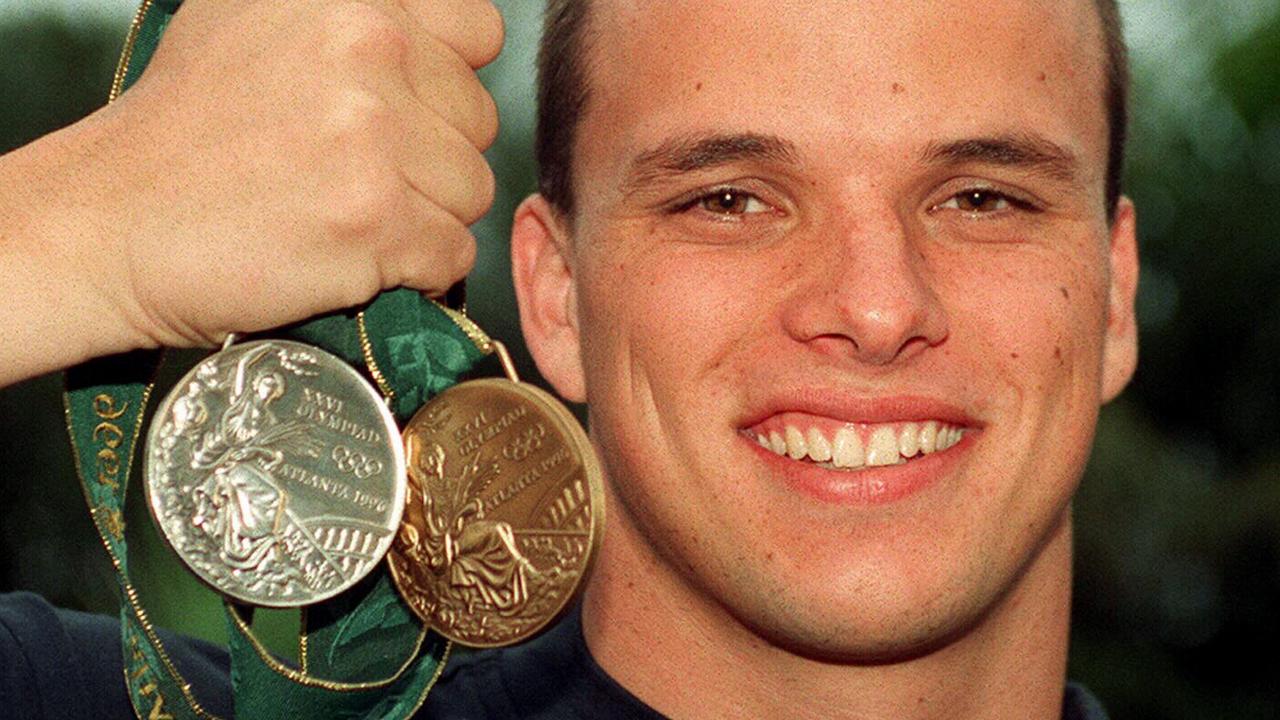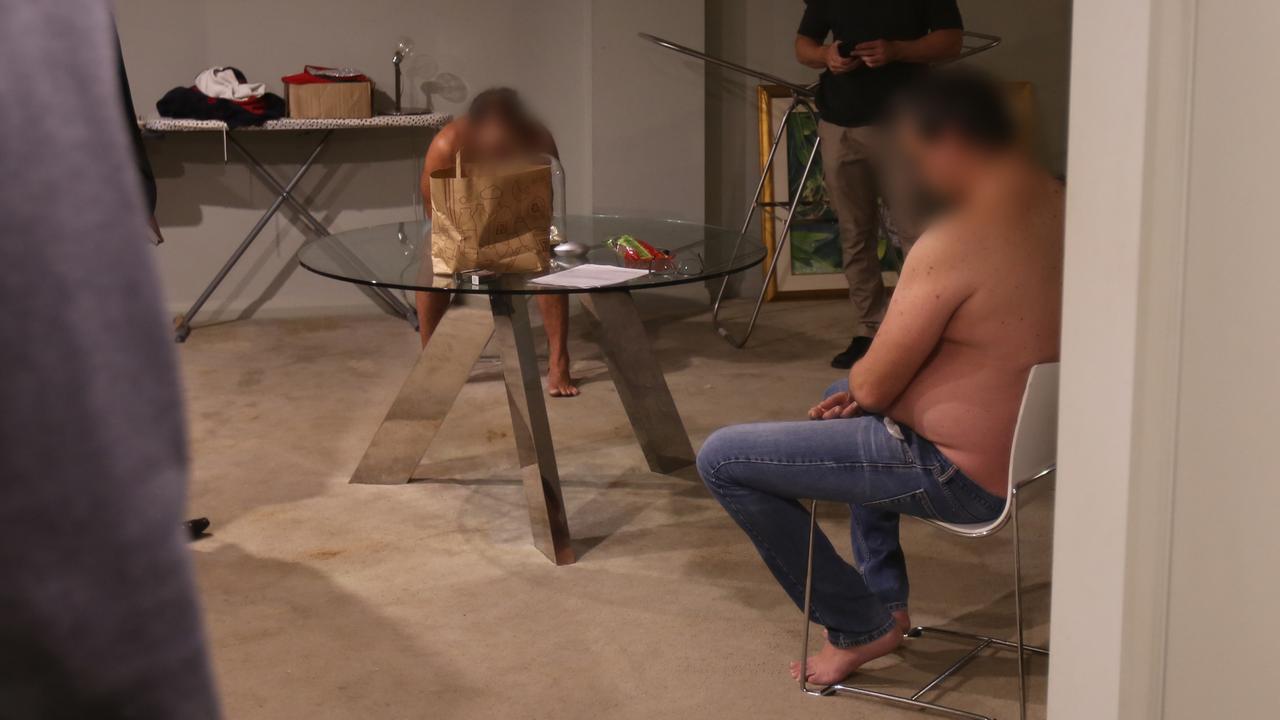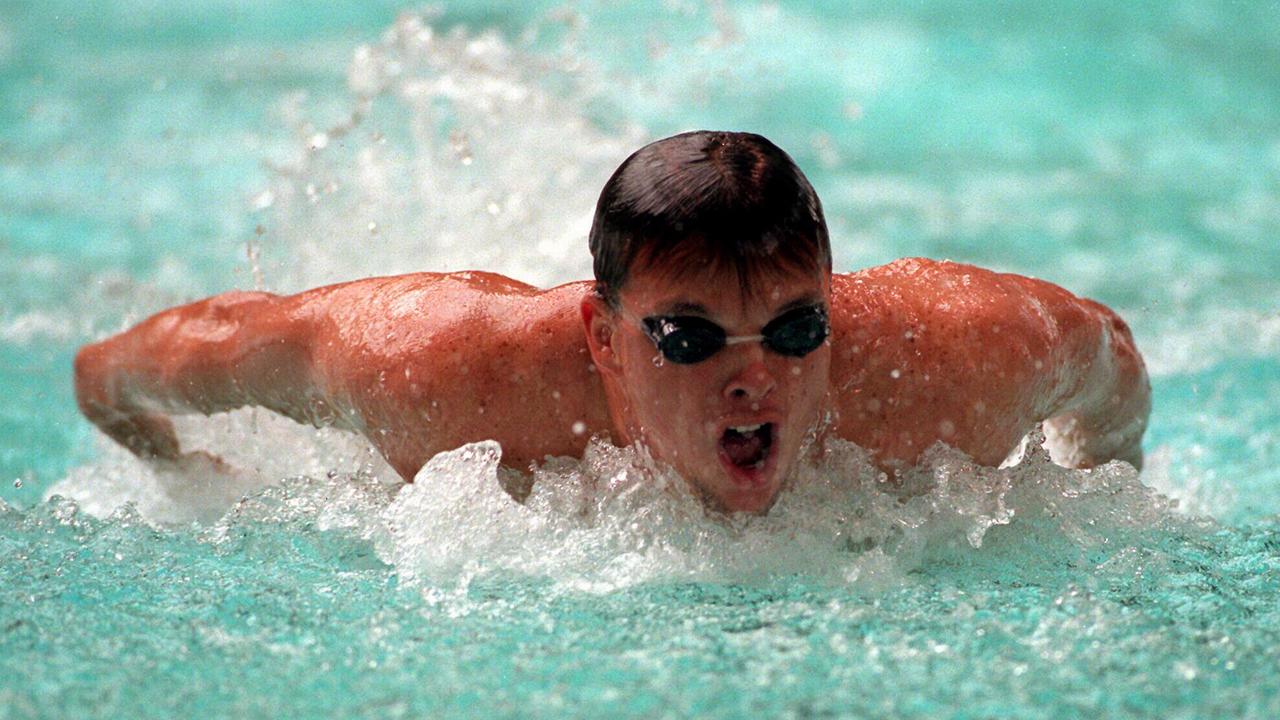Ex-Olympian Scott Miller jailed for supplying illegal drugs
An Olympic medallist’s “public comedown” led him to drugs and a “central role” in supplying heroin and ice, a court has been told.
An Olympic medallist has been jailed for having a “central role” in supplying commercial quantities of ice and heroin following a “public comedown” from his elite swimming career.
Scott Andrew Miller, 47, was beamed into Sydney Downing Centre District Court on Thursday after pleading guilty to two counts of supplying a prohibited drug, dealing with property proceeds of crime and participating in a criminal group contributing to criminal activity.
The former swimming star appeared stoic as he learnt his fatefor supplying large quantities of ice and heroin after he was busted driving a shipment of drugs from Sydney to the NSW town of Yass in early 2021.

Police had previously obtained a surveillance warrant and lawfully placed listening devices and trackers in a white Toyota Camry with West Australian licence plates, the court was told.
Miller drove the car from his home in Rozelle to the nearby suburb of Balmain in early January and walked away while a person in high visibility workwear placed a bag inside the car.
The court was told the bag held eight candles containing nearly 4kg of methamphetamine.
When Miller returned to the Camry, he moved the bag into a secret compartment that had a “significantly complex” locking mechanism to deter accidental openings, the court was told.
He made the 280km journey with a $2.2m haul of meth and his co-accused Wayne Allan Johnson, 49, on January 12.
The court was told when they arrived in Yass, they met another co-accused Justin Szabolics, 47, who travelled with the pair to a rural road where he relieved them of the ice stash.

Szabolics and another man were then forced to ditch the bag of drug-laced candles in the bush after they were chased by police. The meth contained in the bag was seven times the threshold for a commercial quantity of illegal drugs, the court was told.
Judge Penny Hock said Miller showed both co-accused the location of the hidden compartment and how to open it to access the drugs.
She said the former swim star “had a central role” in supplying the drugs “of significant value”.
Miller was arrested at his home in Rozelle in Sydney’s inner west on February 16 last year while clad only in his blue jeans in a bare living room. During a subsequent search of his home, the court was told police seized nearly 800g of heroin and more than $72,000 in cash.
The court was told he had “sole custody” of the heroin.
The Rozelle resident has suffered a spectacular fall from grace since he swam for Australia at the 1996 Atlanta Olympics and won silver and bronze medals.

He also won two gold medals for his butterfly performances at the 1994 Commonwealth Games.
His lawyer Arjun Chhabra previously told the court that Miller had suffered a “public comedown” after his youth as an elite sportsman left him “ill-equipped to move into a life beyond his sporting career”.
Ms Hock told the court Miller moved to live full-time at the Institute of Sport in Canberra after he was discovered at 15 years old.
“That is when his mental health issues commenced,” she said.
She noted that people who knew him while he was an elite athlete testified that he felt the pressure to perform keenly and was unsatisfied with second place at the Olympics.
“He was devastated he didn’t win gold,” the judge read from a character reference tendered to the court.
“This was the level of expectation he placed on himself.”

The court was told Miller used cocaine and ecstasy on an “intermittent” basis at the beginning, but his drug use increased after he retired from swimming in 2004.
The pressures of fame meant his struggles with mental health and drug use were well publicised and exacerbated the issues, Ms Hock said.
“The suicide of his ex-wife in 2014 placed an extra strain on him,” she said.
The court was previously told Miller blamed himself for the death of his ex-wife Charlotte Dawson, who was a popular television personality and model.
The ex-Olympian “made a number of bad business decisions” that took a turn for the worse when Covid shut down his trucking business.
“All of the offenders were motivated by financial gain and they acted with complete disregard for the harm these substances can cause,” Ms Hock said.
“They must recognise they are at a critical point in their offending.”

Miller, who was attacked in prison while he was asleep, was sentenced to five years and six months in jail for supplying heroin and ice in commercial quantities.
The sentence began when he was arrested in February last year, so he will be eligible for parole on February 15, 2024.
Szabolics received a jail term of three years and nine months and will be eligible for release on April 13 2023.
Judge Hock sentenced Johnston to an intensive corrections order of one year and 10 months.




